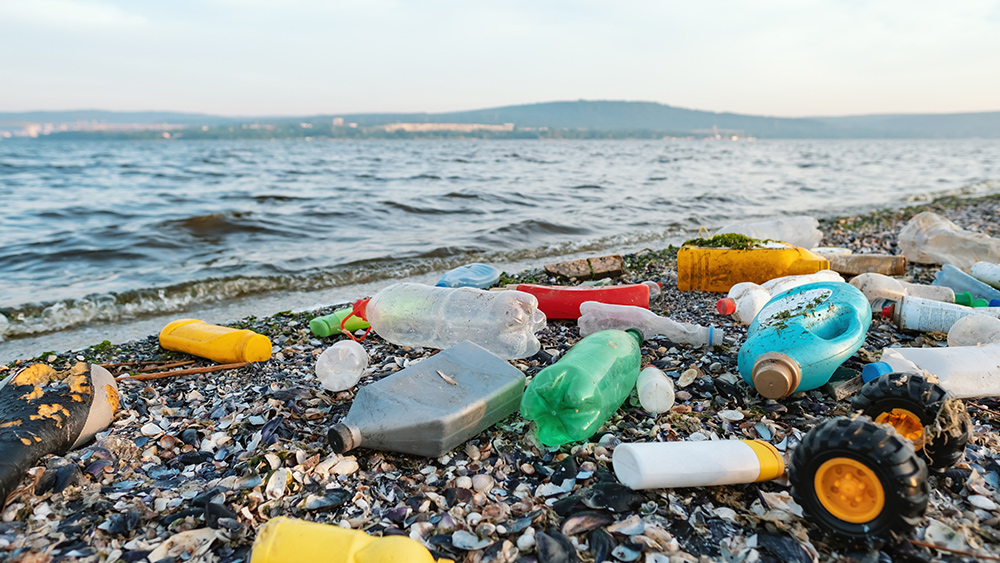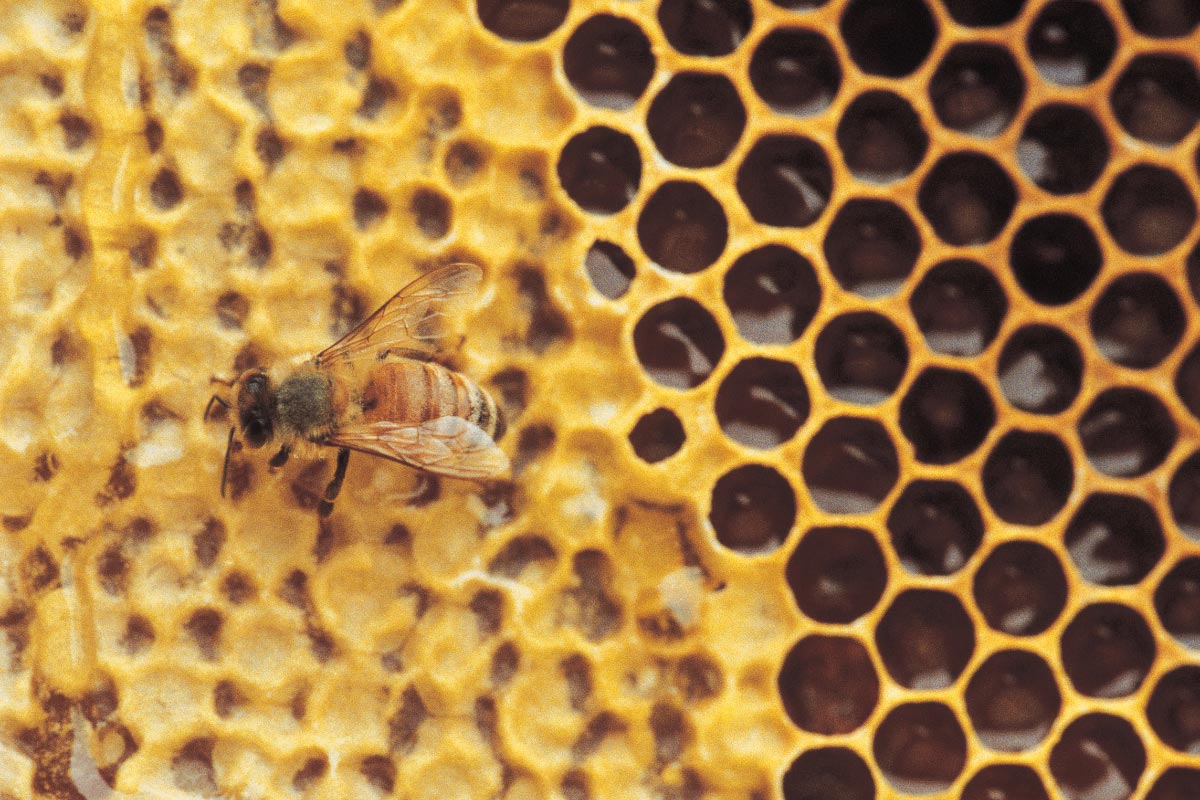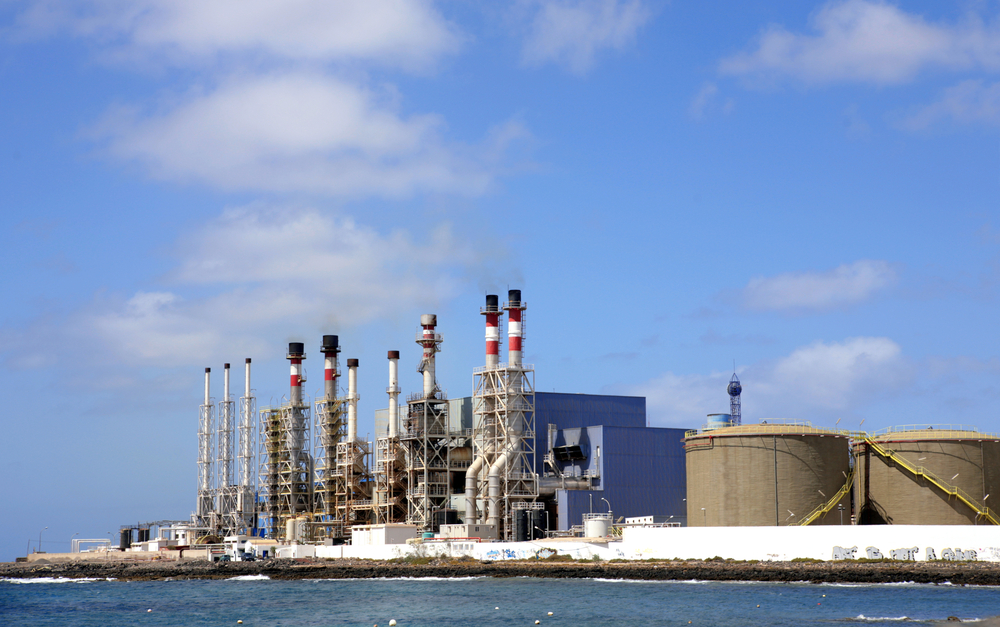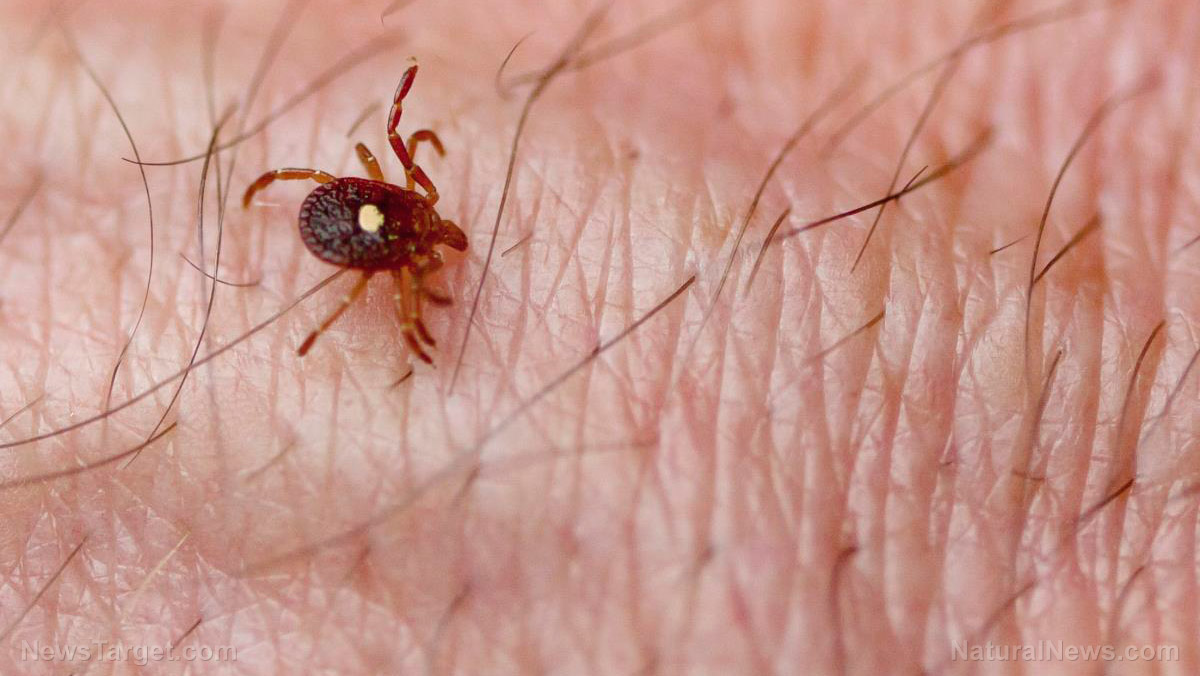Pregnant women are being exposed to more dangerous industrial chemicals, warn researchers
05/27/2022 / By Zoey Sky

Research suggests that exposure to harmful chemicals can cause many health problems in people of all ages. And according to a recent study published in the journal Environmental Science and Technology, pregnant women are being exposed to more dangerous industrial chemicals.
These harmful chemicals include parabens, pesticides and plastics, along with “replacement chemicals” for substances like bisphenols and phthalates that are known to cause many adverse effects.
There is a wealth of data that proves chemical exposures during pregnancy is a “critical window of vulnerability.” Health experts also called for public awareness of these growing threats and swift action by government regulators to reduce exposure.
The recent study follows the 2021 release of data that revealed how over 100 different chemicals were present in pregnant women’s blood and umbilical cord samples.
However, in the present study, the research team also detected these chemicals and tracked exposure levels for 12 years.
The cohort of 171 women included a diverse group of people from seven American states and territories like California, Georgia, Illinois, New Hampshire, New York and Puerto Rico. Twenty percent of women participating were Black, one-third were White, 40 percent were Latina and the remaining were from other groups.
Throughout the study, the researchers conducted routine monitoring using an advanced diagnostic method that lets them analyze dozens of chemicals from a single urine sample.
The research team reviewed 103 chemicals and findings showed that over 80 percent of the chemicals are detected in at least one of the participants. Additionally, one-third of the compounds are found in over 50 percent of women.

The study also revealed that many women have levels of neonicotinoid insecticides in their urine. (Related: Scientists find 55 new environmental chemicals in pregnant women, newborns.)
While widely known for the dangers they pose to pollinators, scientific data from the last decade has also highlighted the adverse effects of pesticides on human development from prenatal exposure. According to a review by the Natural Resources Defense Council, several peer-reviewed studies have linked these exposures to autism-like symptoms and birth defects in the brain and heart.
Pregnant women from certain communities are exposed to more chemicals
The study also found that the body burden of the dangerous chemicals is disproportionate among women of different races and backgrounds.
According to findings, there was higher exposure amounts in non-White women, those with less education and pregnant women who are single.
Jessie Buckley, first author of the study and associate professor at Johns Hopkins Bloomberg School of Public Health, explained that even though the pesticides and replacement chemicals were prevalent in all women, data showed that Latinas had substantially higher levels of parabens, phthalates and bisphenols. She noted that this could be because of higher exposures to products with chemicals like processed foods or personal care products.
The study findings are in line with recent research showing that Black, Indigenous and People of Color communities are often exposed to pesticides at disproportionately higher rates compared to other communities.
Aside from higher rates of chemical exposures, current laws result in “weaker protection of these communities.” Researchers also identified other areas of concern like elevated risk factors for pesticide-induced illness, toxic housing and poor enforcement even after problems are identified.
The study also found that many of the chemicals detected are found in higher amounts compared to the previous studies in the peer-reviewed literature.
Tracey J. Woodruff, senior author of the study and professor and director of the UC San Francisco Program on Reproductive Health and the Environment and co-director of the UCSF EaRTH Center, said that this marks the first time researchers were able to measure and identify the amounts of chemicals in such a large and diverse group of pregnant women.
She added that their findings emphasize how “the number and scope of chemicals in pregnant women are increasing during a very vulnerable time of development for both the pregnant person and the fetus.”
Adverse effects of chemical exposure during pregnancy
Pesticide exposure during this “critical window of vulnerability” is linked to various long-term health hazards.
According to a study published last April, maternal pesticide exposure during pregnancy can affect sleep patterns in daughters later in life. This suggests that sleep problems you may be having now may be caused by chemical exposure when you were only a baby.
Exposure during pregnancy can increase the probability of childhood ear infections. This can increase the risk of hearing loss, which can set back childhood development and significantly change the course of a child’s life.
Data also suggests that pregnant mothers who have used insecticides have a 98 percent increased risk of having children with attention deficit hyperactivity disorder (ADHD) scores in the 90th percentile.
Chemical exposures can also affect the health of both mother and child in various ways. According to data, early exposure to pesticides in the womb increases the risk of the rare fetal disorder holoprosencephaly. This disorder prevents the embryonic forebrain from developing into two separate hemispheres.
Pesticides can also cause early births and low birth weight. Research has found that glyphosate may be a primary contributor to these.
Overwhelming data has also found a link between prenatal pesticide exposure to a greater risk of developing cancers like acute childhood leukemia or nephroblastoma kidney cancer.
Unfortunately, while peer-reviewed research has highlighted the need to strictly regulate or ban the use of these harmful industrial chemicals, federal regulators at the Environmental Protection Agency (EPA) continue to allow harmful exposures to occur.
In some instances, the EPA even permitted increases in application rates of chemicals linked to prenatal and early childhood health impacts, like the pyrethroid class of insecticides.
Tips on how to avoid exposure to chemicals when pregnant
Follow these tips to ensure your safety and avoid further exposure to dangerous chemicals when pregnant:
- Wash your hands thoroughly.
- Find safer alternatives whenever possible. For example, use products that contain low levels of chemicals. You can also make non-toxic cleaning solutions using safe ingredients like baking soda and vinegar.
- Store all chemicals safely. Keep them out of reach of children and with safety caps screwed on correctly on all containers.
- Read and follow the instructions on any packaging.
- If you are pregnant or breastfeeding, postpone home renovations.
- Always keep your home well ventilated.
- If you have a task that involves chemicals, like cleaning, ask someone else to do it.
Visit Chemicals.news for more on the harmful effects of industrial chemicals.
Watch the video below to know how to cleanse and detox for conception.
This video is from the Dr. Edward Group channel on Brighteon.com.
More related stories:
CDC encourages pregnant women to take COVID vaccines, citing spike in pregnancy deaths.
WHO warns against administering Moderna coronavirus vaccine to pregnant women.
Another danger from fracking: Benzene exposure during pregnancy found to affect maternal health.
Sources include:
Submit a correction >>
Tagged Under:
This article may contain statements that reflect the opinion of the author




















